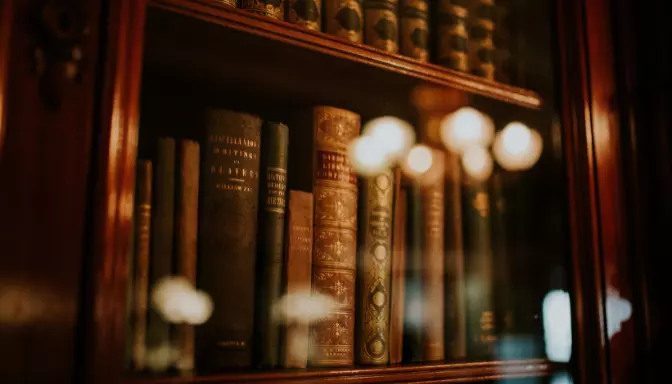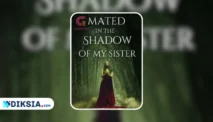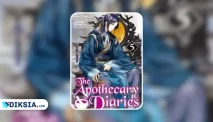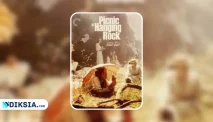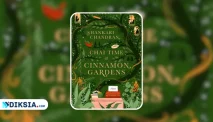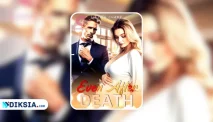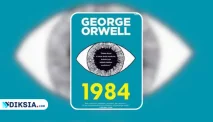Diksia.com - If you are a book lover who wants to explore the classics of the 20th century, you might be overwhelmed by the sheer number of novels that have been published in the past hundred years.
How do you choose which ones to read? How do you find the ones that suit your taste and interest?
How do you avoid missing out on the gems that have shaped the literary landscape of our time?
One way to answer these questions is to consult the Modern Library 100 Best Novels list.
This is a list of the best English-language novels published during the 20th century, as selected by Modern Library, an imprint of Penguin Random House that specializes in publishing classic books.
The list was created in 1998, with the purpose of bringing the Modern Library to public attention and stimulating sales of its books.
The list is divided into two categories: one based on the opinions of the Modern Library editorial board, and one based on the votes of readers who participated in an online poll.
The editorial board consisted of ten prominent writers, critics, historians and scholars, such as Daniel J. Boorstin, A. S. Byatt, Christopher Cerf, Shelby Foote, Vartan Gregorian, Edmund Morris, John Richardson, Arthur Schlesinger Jr., William Styron and Gore Vidal.
The reader’s list was open to anyone who wanted to vote for their favorite novels online. More than 200,000 votes were cast, resulting in a very different ranking from the editorial board’s list.
The reader’s list was dominated by science fiction and fantasy novels, such as The Lord of the Rings by J.R.R. Tolkien, Atlas Shrugged by Ayn Rand, and Dune by Frank Herbert.
The Modern Library 100 Best Novels list is not meant to be a definitive or authoritative ranking of the best novels of the 20th century.
It is rather a subjective and diverse selection that reflects the preferences and perspectives of different groups of readers and experts.
It is also a dynamic and evolving list that can change over time as new books are published and new opinions are formed.
The list is a valuable resource for anyone who wants to discover or revisit some of the most influential and acclaimed novels of the past century.
It can help you find novels that match your interests, challenge your assumptions, expand your horizons, inspire your imagination, or simply entertain you.
It can also spark lively discussions and debates among book lovers about what makes a novel great and why.
Here are some tips on how to use the Modern Library 100 Best Novels list to enhance your reading experience:
- Compare and contrast the editorial board’s list and the reader’s list. What are the similarities and differences between them? What do they reveal about the tastes and values of different groups of readers? Which list do you agree with more and why?
- Browse through the list and look for titles that catch your eye. Read the summaries and reviews of the novels that interest you and see if they appeal to you. You can also check out some excerpts or samples online or in a bookstore before buying or borrowing them.
- Choose a novel from the list that you have never read before or that you have not read in a long time. Give it a try and see if it lives up to its reputation or surprises you in any way. You might discover a new favorite or rediscover an old one.
- Read a novel from the list that is outside your comfort zone or genre preference. You might find yourself enjoying something that you did not expect to like or learning something new from a different perspective or style.
- Read a novel from the list that is related to another novel that you have read or want to read. For example, you can read Ulysses by James Joyce, which topped the editorial board’s list, and then read A Portrait of the Artist as a Young Man by Joyce, which is his earlier semi-autobiographical novel. Or you can read The Catcher in the Rye by J.D. Salinger, which ranked high on both lists, and then read Franny and Zooey by Salinger, which features some of the same characters.
- Read a novel from the list that is set in a historical period or a geographical location that fascinates you or that you want to learn more about. For example, you can read The Grapes of Wrath by John Steinbeck, which depicts the hardships of migrant workers during the Great Depression in America, or Midnight’s Children by Salman Rushdie, which explores the effects of India’s independence and partition on a generation of children born at midnight on August 15, 1947.
- Read a novel from the list that has been adapted into a movie or a TV show that you have watched or want to watch. Compare and contrast the original and the adaptation and see how they differ in terms of plot, characters, themes, tone, and style. Which one do you prefer and why?
- Read a novel from the list that has been recommended to you by a friend, a family member, a teacher, a librarian, a book club, or a celebrity. Find out why they liked it and what they learned from it. Share your thoughts and opinions with them after reading it.
- Read a novel from the list that has been challenged or banned in some places or times for its controversial or provocative content. Find out why it was censored and how it affected its reception and impact. Do you agree or disagree with the reasons for its censorship? How do you feel about its content and message?
- Read a novel from the list that has won or been nominated for a major literary award, such as the Pulitzer Prize, the Booker Prize, the Nobel Prize, or the National Book Award. Find out what criteria and standards were used to judge its quality and merit. Do you think it deserved the recognition and praise that it received?
The Modern Library 100 Best Novels list is not a fixed or final list of the best novels of the 20th century.
It is rather a starting point or a guide for anyone who wants to explore the rich and diverse literature of the past hundred years.
It is also an invitation to join the conversation and share your own opinions and preferences about what makes a novel great and why.
